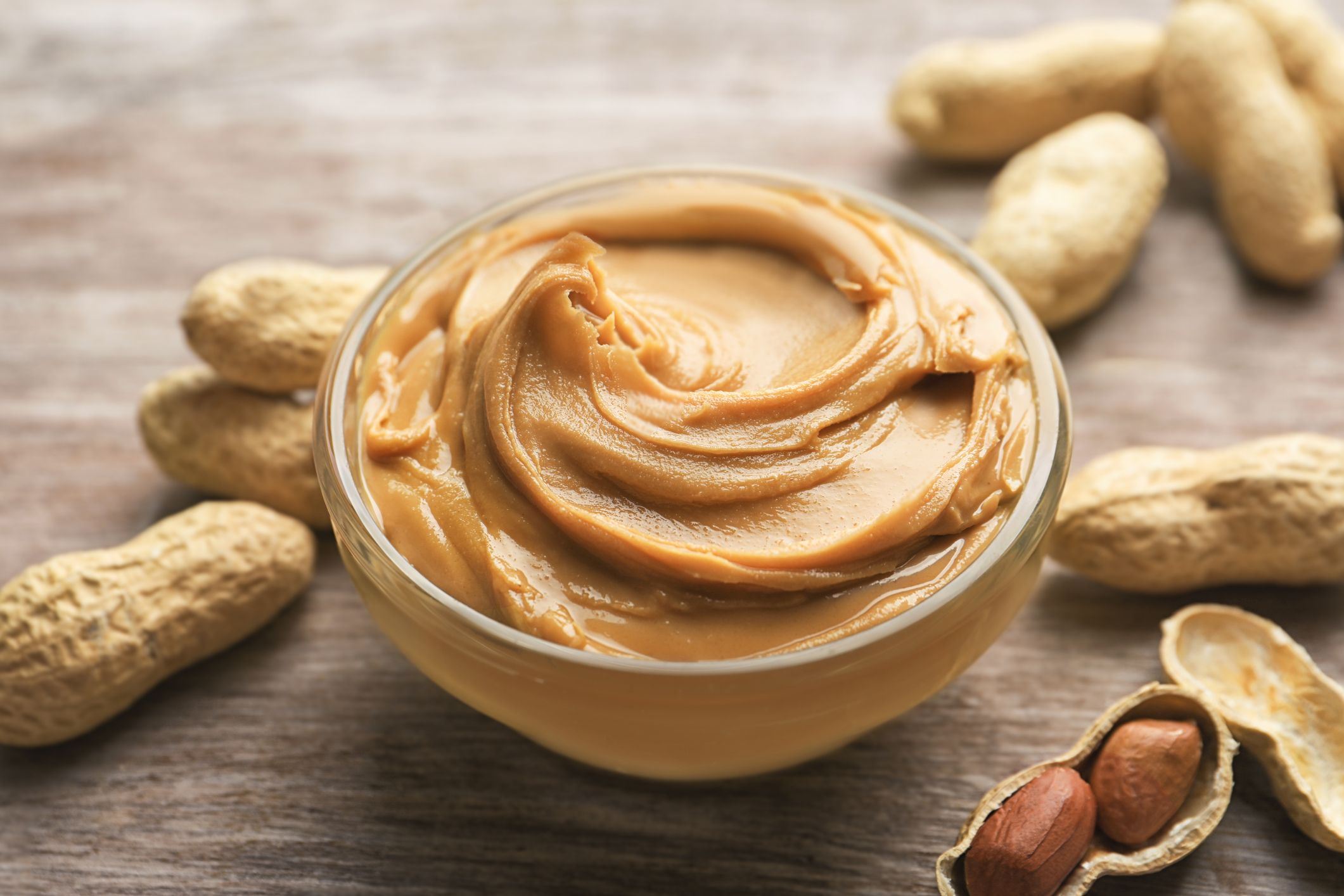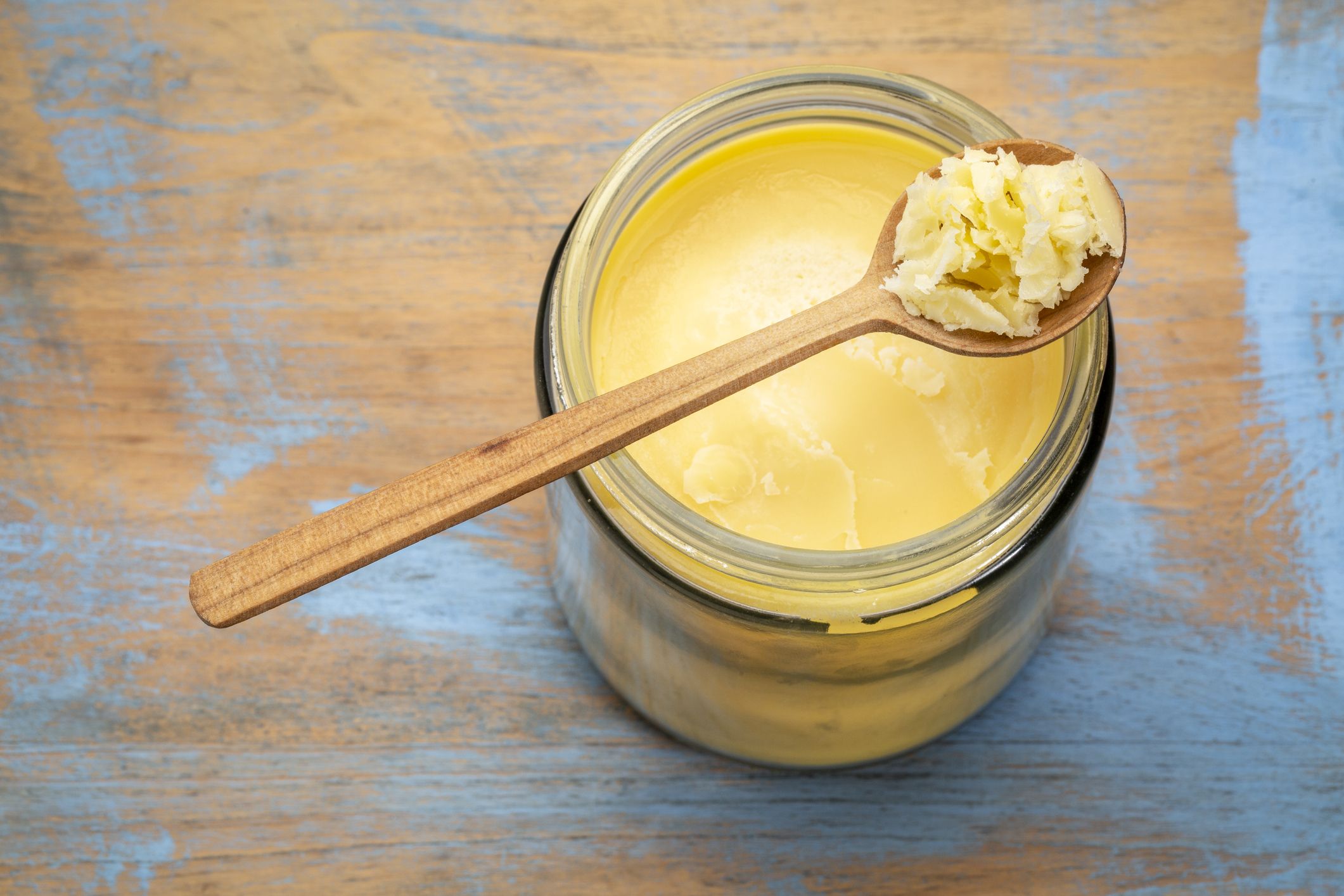You Shouldn’t Keep Natural Peanut Butter In Your Pantry For More Than 4 Weeks
Without question, peanut butter is one of the best foods out there—you can spread it on bread for a sammie, add it to smoothies, spoon it on oatmeal, or in my case, simply grab a spoon and eat it straight from the jar. (No shame, here.)
However, when it comes to storing this magical spread (you know, if you don’t eat the entire jar in one sitting)…that’s where things get a little controversial. Some people keep it on the pantry shelf while others swear by popping it right into the fridge.
Personally, I’m a room temperature sort of girl, but I have wondered if I’m making the right choice in terms of safety, taste, and texture. So, I asked Alex Lewis, RD, dietitian for Baze, to weigh in on whether or not you should refrigerate peanut butter.
Give it to me straight: Do you need to refrigerate peanut butter?



If you’re able to keep your peanut butter in a cool, dark place, you don’t need to refrigerate. “In a cool, non-humid climate, you have three to four weeks before the oil may go bad, meaning if you can go through a jar in less than a month you should be okay to not refrigerate,” she says. “However, because life is unpredictable, I always refrigerate mine just so I don’t run the risk of wasting it—and wasting my money!” she adds.
One caveat: If you found your peanut butter in the refrigerated section of the store (which is unlikely, but it could happen), then store it in the fridge when you get home to be safe.
“Ultimately, check the label of your specific peanut butter. If refrigeration is recommended, it will say ‘refrigerate after opening’ somewhere on the label,” Lewis says. Otherwise, it’s really personal preference.
What if it’s natural peanut butter?
It might be a good idea to refrigerate natural peanut butter (Lewis recommends it), but it’s certainly not required. Here’s the thing: Natural peanut butter is just peanuts and salt, no processed ingredients—which is great, but that also means the oil tends to separate from the ground-up nuts. If you refrigerate after stirring, it’ll help keep the solids and oils together, says Lewis.
Another perk to the fridge: “The oils in the peanut butter can go rancid after a few weeks if you’re in a hot climate,” she says, so a cool environment can help stave off that outcome.
Does peanut butter ever expire?
Okay, so now that you know the oil can “go bad” after a couple weeks, you’re probably wondering what that means exactly. “The oils within the nut butter can go rancid,” says Lewis. “Additionally, peanut butter that doesn’t contain preservatives is at a higher risk for growing mold,” she says. No matter the date, if you notice mold in your peanut butter, throw it out ASAP. And if it smells funky, go buy a new jar.
Otherwise, follow these guidelines:
- Natural peanut butter: Enjoy it in less than a month if you store it in the pantry. If stored in the fridge, it keeps up to several months.
- Preservative peanut butter: Stored in the pantry, it stays good for two to three months. It’s fine in the fridge for up to nine months.
- Unopened jars: Go by the expiration date on the label.
Craving a protein-packed snack? Watch ‘Bachelorette’ Hannah Brown test out the best protein cookies:
FWIW: If you do decide to refrigerate your peanut butter, “you may find it hard to get out of the jar and spread,” says Lewis. Her quick tip? “Take out the serving of PB you want and let it sit at room temperature to soften for a little bit ahead of serving—this also tastes better in my opinion!”
Bottom line: It’s not essential to refrigerate your peanut butter, but it will keep the product good for a longer amount of time.
Source: Read Full Article


